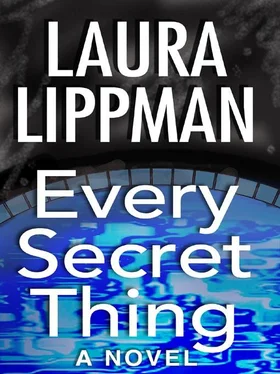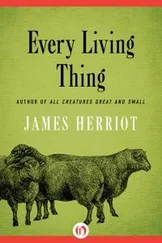The two patrol officers had said they needed to come to the apartment to get a photo of Brittany for the evening news. Maveen knew they also wanted to poke around her home, look for evidence that wasn’t there. They seemed to suspect Devlin more than her, but that was just as infuriating.
“Look, when a child goes missing, we always find them,” said the younger of the two young officers, Ben Siegel, the one who had been left to sit with her on the old sofa. This was the piece of furniture Maveen and Devlin had hoped to replace when he got his insurance check. She wanted to explain that she knew it was beat-up and old, that it had been a castoff from her mother. Maveen never would have chosen a light solid that showed the dirt, not with a child. But Officer Siegel didn’t seem to notice. He sat between Maveen and Devlin as if he spent every night here, waiting for the ten o’clock news to come on.
“You always, always find them?” Maveen asked.
“Always. I can’t remember a single case where a child truly went missing for more than a few hours.”
She caught that truly . He was still accusing. Everyone was judging them all the time.
The news finally came. Maveen felt a weird burst of pride to see her baby’s photo up there, the second story of the evening, and Devlin smiled in a fond way that he seldom did when Brittany was here. You didn’t have to be rich or famous for your missing baby to matter. A lost child was a lost child. That’s what made the U.S. of A. a great country. And Brittany was so beautiful, people couldn’t help taking extra notice, Maveen thought. It had killed Maveen’s parents when she had taken up with Byron, but who could argue with the result? Brittany had skin the color of a coffee that was half cream, ringlets just a shade darker, and green eyes with lashes so long you’d swear she was wearing false ones. She was delicious looking. Even other children wanted to pinch her cheeks, stroke her hair.
The telephone rang before the last notes of the newscast’s theme song had bounced away. Maveen jumped on it, only to hear another officer, Donald something, tell her to put Officer Siegel on the phone. Reluctantly she turned over the phone, feeling a strange sensation, as if a moth or a bug was trapped in her throat.
“What’s wrong?” she demanded when he hung up the phone. “Something’s wrong, I can tell. What did he say? What’s going on?”
Crazily, the thought ran through her head that she should beat on his chest with her fists, the way women do in the movies, only to have men grab their wrists and kiss them. It wasn’t that she wanted to kiss this cop, who didn’t appeal to her at all. But if she started acting like it was a movie, maybe it would end like a movie, with everyone safe and happy.
“Nothing’s wrong, exactly,” he began, licking his lips. “The thing to consider is that it’s a lead, and leads are good. Assuming…if…Ms. Little, did you mention what Brittany was wearing today?”
“I told you and told you. She had on a sundress, denim with white stitching at the pockets, and white tennis.”
“And she was toilet trained?”
“Sort of. She was wearing pull-ups.” Officer Siegel looked confused. “For when she forgot.”
Brittany had been forgetting a lot lately, ever since Devlin came to live with them, but Maveen didn’t see any reason to tell the officer that.
“It’s just that”-he put his hand on her shoulder, and Maveen flinched as if someone had hit her, as if a two-by-four had fallen on her-“the custodian at the mall was doing the bathrooms and he found something in the trash. It was a denim jumper-”
Maveen broke down so completely that the officer didn’t finish his piece. He let her collapse, crying, into Devlin’s arms, standing awkwardly to the side. It was left to the homicide detectives, who arrived within the hour, to decide if they wanted to tell the still-sobbing mother about the shorn hair at the bottom of the wastebasket and the blood-soaked T-shirt that was on its way to the lab for testing.
Part II. The Dogs of Pompeii
The elevators in the Baltimore County Public Safety Building were famously slow, so all but the laziest workers had an informal rule known as “one floor up and two floors down.” Nancy, however, always checked the elevator bays before ducking into the stairwells. You never knew when the commissioner or a major might be waiting there, or a detective with whom she needed to compare notes. This was the kind of thing she had learned from her uncle Stan, who had been known as the thirty-three-thirty-three lieutenant, for he had attained that rank at the age of thirty-three and advanced no higher until his retirement thirty-three years later.
But there was zero expectation of a useful chance encounter on a Saturday morning, especially over a holiday weekend, so Nancy went straight for the stairs, almost running the steps from the tenth floor, home of Homicide, to the eleventh, which housed the crime lab. The eleventh was the top floor, and the lab was there for a practical reason: the placement reduced the building’s exposure to damage if the lab’s contents ever exploded. Nancy had found this possibility ludicrous when she first joined the department, but it no longer seemed so. Everything was possible now.
“I didn’t know you were working this case,” said the lab tech, Holly Varitek. “Isn’t it awfully fast for you to be up again?”
Nancy shrugged, determined not to bitch. Infante had thrown a tantrum when Lenhardt changed the rotation on them last night, following the sergeant into the men’s room to plead his case. Infante had planned to drive out to Deep Creek Lake with the redheaded barmaid, Charlotte something. He had slammed out, and been curt to Nancy the rest of the night. Guys could get away with being bratty. Nancy had to be stoic. She even had to be stoic about being stoic.
“Well, at least your snatcher was considerate,” said Holly, a chatty type inclined to fill silences. Brisk and wide-eyed, with shiny dark hair and vivid coloring, Holly was one of those people who seemed to be put together with higher quality parts than everyone else. Even her metabolism was better than the average person’s, for she could eat anything she wanted and not get fat. Nancy couldn’t help noticing that.
“Considerate how?”
“Well, first of all he-you’re assuming a he, right, given that the stuff was found in the men’s room-left the girl’s hair with the jumper. It’s like he wanted to make it easy for us to compare the DNA if the blood didn’t match. Of course, we still needed the mother’s sample, for control, because you wouldn’t want to assume the pile of hair is the girl’s hair. You see-”
“I know,” Nancy said, trying not to let her impatience show. The people with technical expertise-the lab techs, the M.E.’s, even those who conducted ballistic analysis-were all a little in love with their knowledge, like eleven-year-old boys who had just learned some basic fact of science or math and had to bore the rest of the world with it. “Do we have a match on the blood or not?”
Holly’s easygoing temperament made her impossible to offend. “The spots on the jumper are definitely blood, but it’s not the missing girl’s, or the mother’s. No match. It does, however, match this man’s T-shirt, which was balled up in the same trash can and had a lot more blood on it.”
“Huh.” Nancy slumped against the counter, thinking. It struck her as a backward break, the kind of information that widened the investigation for now, but could narrow it later, with luck. The blood on the jumper was probably the kidnapper’s, although it wasn’t 100 percent. If they made an arrest, they’d have a key piece of physical evidence.
Читать дальше












